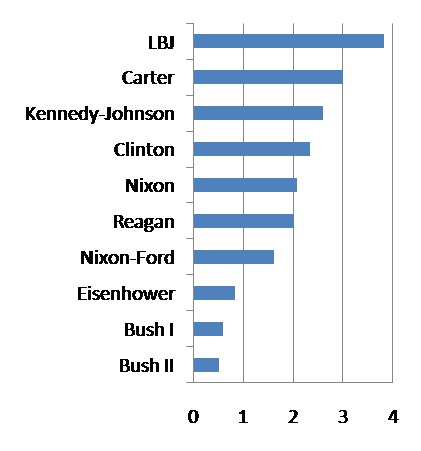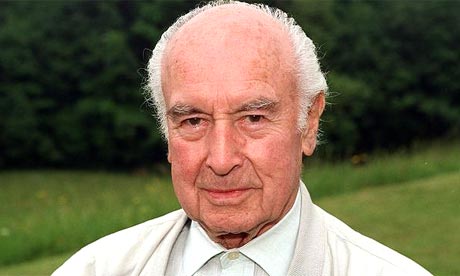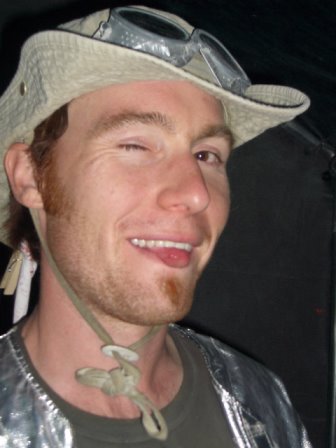
2008 is turning out to be a MASSIVE election. Since I have become old enough to vote, I can't think of another election where SO MUCH has been on the line, in SO MANY places. Here's a quick run-down of the MOST IMPORTANT THINGS.
United States President:
Barack Obama.
Do I need to explain this to anybody? He's the man.
CALIFORNIA:
Proposition 1A, High Speed Rail:
California truly can lead the nation if it passes Proposition 1a, by building a world-class high speed rail system to connect all of its major cities with one another. This in turn will probably jump-start a serious national discussion about high speed rail, as Congressional Representatives and Senators seek to bring home some high speed rail action to their own states when California brings up the topic of federal matching funds. Places in the world that already are boosting their economies with High Speed Rail (or planning to) include Mexico, Argentina, China, Taiwan -- oh yeah, and Japan and Western Europe. Not to mention jobs; 160,000 jobs will be directly created as a result of the project, and 450,000 jobs over the long term. That is more jobs than currently exist in the entire state of Alaska.
SONOMA & MARIN COUNTIES
Measure Q, SMART rail:
Sonoma and Marin counties have voted in the past on the issue of the Sonoma-Marin Area Rail Transit (SMART) project. It has always received greater than 50% of the vote, but never yet passed the 66.6% threshold required to raise the sales tax to fund construction of the project. Since the last time it was on the ballot, it has been tweaked to include night and weekend service proposals, as well as perfect the accompanying two-county-long bicycle trail. Several cities on the proposed alignment have already begun focusing their growth around the train stations (which in many cases already exist), including Cloverdale, Santa Rosa, Petaluma, Novato and San Rafael. This is the High Speed Rail project-equivalent for the North Bay (at least for Sonoma and Marin counties), and it is equally important for those areas. It will become the transportation centerpiece for these communities, tying them to one another and offering their residents the currently-unavailable option of NOT DRIVING to leave town. And, for those folks that would prefer to see, say, a dedicated-ROW Rapid Bus system: That is not the question on the ballot. This is the chosen technology, this is the proposal that currently has legs, and this is the project that will restore the livability of your communities.
OREGON
UNITED STATES SENATOR: JEFF MERKLEY
Oregon is currently home to the only remaining Republican United States Senator on the west coast of the lower 48 states, Senator Gordon Smith. He's worse than useless -- he's a rich playboy who owns a frozen-food packing plant, employing illegal aliens to pad his own pockets while doing nothing for federal immigration reform. This is an extremely tight race, so if you're an Oregonian, well, I probably don't need to tell you to be sure and send in your ballot and vote for MERKLEY FOR SENATE!
There are other endorsements I could make (California: Yes on 2, Yes on 5, No on 8), but those are really the MOST CRITICAL ISSUES.
Further, if you're an Oregonian, you already know... but if you're a Californian, I highly recommending registering as an absentee voter, or otherwise securing for yourself the right to vote by mail. I can't tell you how helpful it has been for me to go online and google things as I'm filling out my ballot. Especially for those issues where I had not yet made up my mind prior to seeing the ballot, this is so valuable that I really can't stress it enough.
OK, go out there and PARTICIPATE IN YOUR DEMOCRACY!!!
cheers,
~Garlynn
P.S. A disclaimer, and a special notice. After October 31st, 2008, I will no longer be with the Metropolitan Transportation Commission in Oakland, CA. I have accepted an offer to go join Peter Calthorpe & Associates in north Berkeley, CA as a Senior Planner in their regional planning division. One of my first projects there will be to work on a land use vision for California that is centered around the High Speed Rail project. So, while I will still have a job (and the vision project will continue forward) even if Proposition 1a fails, I would much prefer for my first project at Calthorpe to be relevant. So, tell everybody you know to vote Yes on Prop. 1a... they can do it for me, if for no better reason!!! :-)


















